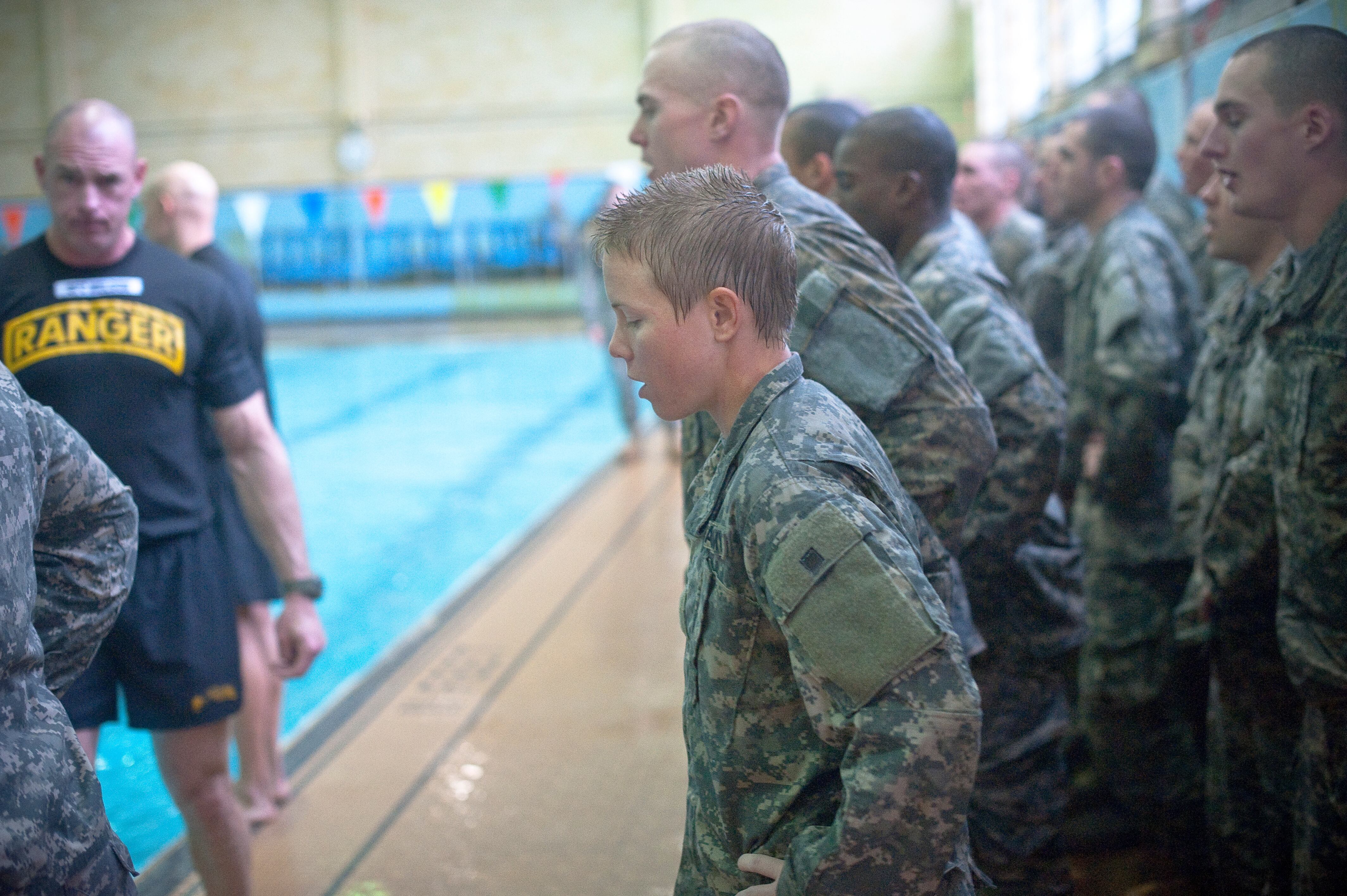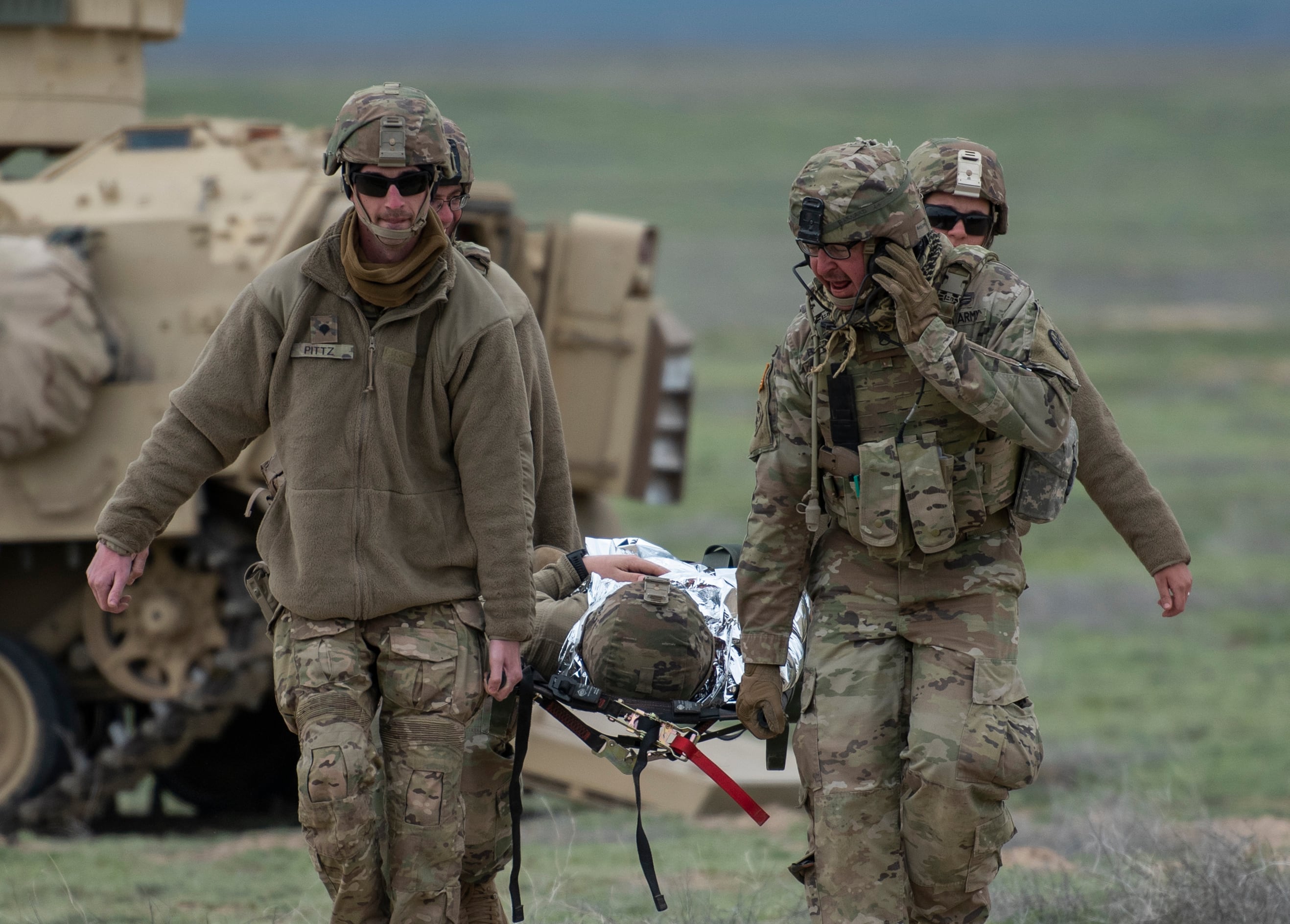Six more female soldiers have qualified to attend Ranger School this spring, bringing to 12 the number of women who have so far qualified for the grueling two-month course, officials announced Wednesday.
The six additional women, all of them officers, successfully completed the March rotation of the Ranger Training Assessment Course at Fort Benning, Georgia.
A total of 119 soldiers — 34 of them women — started the course, which ended March 19. In all, 31 soldiers (25 men, six women) successfully completed the course.
The Army announced in January that it plans to conduct a one-time, integrated assessment at its storied Ranger School in April.
The assessment is part of a wider effort to determine whether and how to open combat arms jobs to women. This assessment will be a first for Ranger School, which until now has been open only to men.
Women who successfully complete Ranger School will receive a certificate and be awarded the coveted Ranger tab. They will not, however, be assigned to the 75th Ranger Regiment, which is separate from Ranger School.
To prepare for the assessment in April, the Army is requiring female candidates to attend the two-week Army National Guard Ranger Training and Assessment Course. There will be up to 40 seats for female candidates in each iteration of the course between January and April. The course has historically been a strong indicator of whether a candidate will be successful at Ranger School, officials said. Data have shown that more than half of the soldiers who complete RTAC will successfully complete Ranger School.
The next iteration of RTAC with male and female students begins April 3. The integrated Ranger School assessment is scheduled to begin April 20.
During the first integrated cycle of RTAC in January, 122 soldiers started the course; 26 of them were women.
A total of 58 soldiers — 53 men and five women — successfully completed the course Jan. 30.
One woman and 35 men successfully completed the February rotation of RTAC. A total of 100 soldiers, including 17 women, started the course.
RTAC is two weeks long and consists of two phases, according to information from Fort Benning.

Male and female Ranger Training Assessment Course students demonstrate their knowledge of combat water survival techniques at the Briant Wells Gym indoor pool Jan. 24 during the Ranger Training Course Assessment at Fort Benning, Ga.
Photo Credit: Patrick A. Albright/Army
The first phase of RTAC mirrors the assessment phase at Ranger School and is designed to assess a soldier's physical and mental abilities. During this phase, a student conducts a PT test, a swim test, land navigation, and a 6-mile foot march. The second phase of RTAC, the field training exercise, is designed to assess and train soldiers on troop leading procedures and patrolling, skills that are used extensively during the Ranger School.
On average, about 45 percent of Ranger School students will graduate. As many as 60 percent of all Ranger School failures will occur in the first four days. Many get disqualified during the physical fitness test on the first day. The test gives candidates two minutes to do 49 pushups and two minutes to do 59 situps, and they also must run five miles in 40 minutes and do six chinups.
In fiscal 2014, PT test failures made up the largest number of Ranger School failures.
The pushup portion of the PT test has been difficult for male and female candidates at RTAC, officials said.
Some don't have the right form, while others couldn't do the 49 required of them within the allotted time.
Both RTAC and Ranger School are "physically and mentally demanding" courses, Maj. Gen. Scott Miller, commanding general of the Maneuver Center of Excellence and Fort Benning, has previously said.
"Not every soldier is going to make it through this course," he said. "The standards are demanding, and the standards are not changing. They're not changing in the pre-Ranger course, and they're not going to change for the Ranger Course."
Michelle Tan is the editor of Army Times and Air Force Times. She has covered the military for Military Times since 2005, and has embedded with U.S. troops in Iraq, Afghanistan, Kuwait, Haiti, Gabon and the Horn of Africa.





